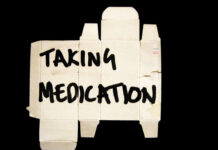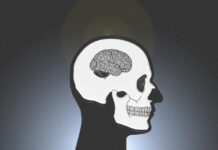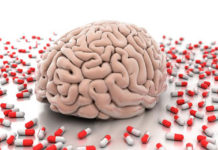Psychiatry Defends Its Antipsychotics: A Case Study of Institutional Corruption
Jeffrey LIeberman and colleagues have published a paper in the American Journal of Psychiatry stating that there is no evidence that psychiatric drugs cause long-term harm, and that the evidence shows that these drugs provide a great benefit to patients. A close examination of their review reveals that it is a classic example of institutional corruption, which was meant to protect guild interests.
Researcher Acknowledges His Mistakes in Understanding Schizophrenia
Sir Robin Murray, a professor at the Institute of Psychiatry, Psychology, and Neuroscience in London, states that he ignored social factors that contribute to ‘schizophrenia’ for too long. He also reports that he neglected the negative effects antipsychotic medication has on the brain.
Taking “Anti-Psychotics” When You Are Not Psychotic
The Wunderink study has been discussed here in other blogs. In brief, using a randomized control design, Wunderink found that in adults diagnosed with a psychotic disorder continuous use of neuroleptics was associated with worse functional outcomes. Is this study relevant to those who do not experience psychosis?
Enslaved to Abilify
A very gifted and compassionate friend recently said that she feels enslaved to Abilify - that she has tried to taper off it several times but always ends up slipping into an extreme state, no matter how slow she tapers. She said this repeated experience makes her feel like a slave, because she has to go back on the drug to stop the very intense extreme state induced whenever she tries to stop taking it.
Antipsychotics and Brain Shrinkage: An Update
Evidence that antipsychotics cause brain shrinkage has been accumulating over the last few years, but the psychiatric research establishment is finding its own results difficult to swallow. A new paper by a group of American researchers once again tries to ‘blame the disease,’ a time-honoured tactic for diverting attention from the nasty and dangerous effects of some psychiatric treatments. People need to know about this research because it indicates that antipsychotics are not the innocuous substances that they have frequently been portrayed as. We still have no conclusive evidence that the disorders labeled as schizophrenia or psychosis are associated with any underlying abnormalities of the brain, but we do have strong evidence that the drugs we use to treat these conditions cause brain changes.
The Astonishing Zyprexa Cover-Up
Back in 2006, when my son Franklin was in his late twenties and living in a group home in the Boston area, he refused to take Clozaril any more because of the required bi-weekly blood draws. His doctor prescribed Zyprexa as a substitute, and Frank suddenly began to gain weight ... a lot of weight. Later, I would learn that UCLA psychiatrist Dr. William Wirshing had said of Zyprexa prior to its 1996 approval by the FDA: “It is just un-stinkin’-believable. It is the best drug for gaining weight I’ve ever seen.” The doctor indicated that taking ten milligrams of the medication was equivalent to ingesting 1,500 extra calories per day. My outrage knew no bounds.
The Case Against Antipsychotics
This review of the scientific literature, stretching across six decades, makes the case that antipsychotics, over the long-term, do more harm than good. The drugs lower recovery rates and worsen functional outcomes over longer periods of time.
8 Years of Mental Health Research Distilled to 4 Infographics
Pictures are worth a thousand words. So I’ve chosen pictures to distill the mountain of mental health research I’ve examined over the last eight years. Three infographics summarize research on psychiatric drugs, and one asserts why I think Integrative Mental Health is the best path available for mental health recovery.
Exploring Psychiatry’s “Black Hole”: The International Institute on Psychiatric Drug Withdrawal
When Carina Håkansson sent out an invitation for a symposium on "Pharmaceuticals: Risks and Alternatives," some of the world's top scientists, along with experts-by-experience, came from 13 countries to explore better ways to respond to people in crisis.
From Stoned to “Schizophrenic”: My Mental Healthcare Journey
During a period of self-doubt, I chose to see a psychiatrist because I was engulfed in negative thoughts and couldn't find a direction in life. The slightest joys came only when I was high. Though my weed addiction was likely causing all of my symptoms, my psychiatrist’s response was to prescribe antipsychotics.
Gradual Tapering is Most Successful for Withdrawal from Antipsychotics
Mixed-Methods study explores the experiences of antipsychotic discontinuation among service users.
Duty to Warn – 14 Lies That Our Psychiatry Professors in Medical School Taught...
Revealing the false information provided about psychiatry should cause any thinking person, patient, thought-leader or politician to wonder: “how many otherwise normal or potentially curable people over the last half century of psych drug propaganda have actually been mis-labeled as mentally ill (and then mis-treated) and sent down the convoluted path of therapeutic misadventures – heading toward oblivion?”
Does Long-Term Use of “Antipsychotic” Drugs Result in More Disability, and More Psychosis?
This sounds like a weird question – everyone knows that psychosis is often very disabling, and antipsychotic drugs are widely recognized for their effects in reducing psychosis in at least most people, and most often taking effect in just a few days. And when people become psychotic again, it’s often understood that it’s because they “weren’t taking their meds.” But what if it’s trickier than that? What if “antipsychotic” drugs make things better in the short term, but make long term problems worse? How would we even know?
Danish Study Finds Better 10-year Outcomes in Patients Off Antipsychotics
Study finds that 74% of patients with a psychotic disorder off antipsychotics at end of 10 years are in remission.
Vitamin B6 Effective in Reducing Antipsychotic Induced Akathisia
A recent RCT showed that vitamin B6 is as effective as propranolol for the treatment of akathisia.
Mad In America’s Chapters
Preface
The World Health Organization has repeatedly found that people diagnosed with schizophrenia in the U.S. and other developed countries fare much worse than schizophrenia...
Robin Williams On Antidepressant at Time of Suicide
Robin Williams had "therapeutic" levels of the tetra-cyclic antidepressant mirtazapine in his blood at the time of his suicide, according to the coroner's report...
Inconvenient Truths About Antipsychotics: A Response to Goff et al
The most worrying thing about the Goff et al paper is the minimisation of the evidence that antipsychotics produce brain shrinkage. There are no studies that show progressive brain changes in people diagnosed with schizophrenia or psychosis in the absence of antipsychotic treatment.
New Study Examines User Experience of Discontinuing Psychiatric Medications
Researchers find that support and self-care were helpful for users during discontinuation, but that mental health professionals were not very helpful.
No More Tears? The Shame of Johnson & Johnson
In 1972, prisoners at Holmesburg Prison in Philadelphia were paid $3 to have their eyes held open with clamps and hooks while Johnson & Johnson's baby shampoo was dropped into them. In 2011, mothers of newborns were arrested when their babies tested positive for exposure to cannabis, a false result caused by the use of Johnson & Johnson’s Head-to-Toe Foaming Baby Wash. Young men have undergone mastectomies to remove breasts grown as a result of Johnson & Johnson antipsychotics, which were used as a result of Johnson & Johnson's criminal promotion of its drugs for off-label purposes. And now, Johnson & Johnson has announced the removal of carcinogenic chemicals from their No More Tears baby shampoo.
The Orwellian New Digital Abilify Will Subjugate Vulnerable People Across the US
The FDA approved the prescribing and sale of a new hi-tech compliance-monitoring “antipsychotic” drug this week. A new chapter in human darkness has descended — one that is applauded by the alliance of control addicts that made it happen.
New Research Suggests Brain Abnormalities in ‘Schizophrenia’ May Result From Antipsychotics
Study finds that reduced cortical thickness and brain surface area associated with 'schizophrenia' may result from antipsychotic drug use.
A New Silver Bullet? The Lurasidone Story
Recently, I have been the target of much wooing by my local Sunovion rep. I think he leaves messages for me almost weekly and he sends me missives - glossy brochures and reprints from major psychiatric journal. What is the subject of this attention? The drug - lurasidone (Latuda).
What It’s Like to Be Involuntarily Committed
Ten years after being fired for taking a mental health leave after the Virginia Tech massacre, I was diagnosed as "schizophrenic" and involuntarily committed to a hospital. Now I have a job and a life, but I'm still forced to take drugs and report to a social worker.
Big Pharma Meets Big Diagnosis, Big Courts, and Big Psychiatric Hospitals
Gottstein’s book is The Pentagon Papers of the traditional mental health system, because he exposes a mind-blowing number and variety of cold-blooded, calculating actions on the part of Eli Lilly in trying to hide what it knew to be the devastating effects of its hugely profitable Zyprexa.


























